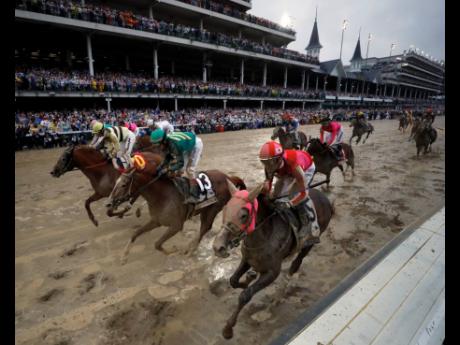Paul Wright | The vagaries of the Kentucky Derby rules
One of the aims of sport is to guarantee a fair result. Rules are agreed, usually before competition starts, that seek to eliminate unfair results. However, there is usually a review when it is demonstrated that the rule, when implemented word for word, provides a result that is patently unfair to the competitor, who, to the casual observer, has no control or input in the conditions that caused the unfair result. The disqualification of the winner of Saturday’s Kentucky Derby is a case in point.
In Saturday’s Kentucky Derby, the horse that started from post position 20 was Maximum Security, a three-year-old colt whose racing career began as a two-year-old US$16,000 claimer. Obviously not well thought of, he duly won his first race, and then the next, and then the next, eventually qualifying for the ultimate prize in North American thoroughbred racing: the Kentucky Derby, the first jewel in the famed Triple Crown, three races approximately two weeks apart of varying distances. Because of the manner of his victory in his last race, the betting public, aided by the odds makers, made him the second choice in a large field of the best three-year-old colts running in the United States.
MUDDY CONDITIONS
On the fateful Saturday morning, the skies opened up and rain poured down on to the track, making the going change from good to sloppy – mud everywhere. Unfamiliar going for the darling and hero of his owners and trainer. At the off, the jockey puts his charge in front, going at an unusually fast pace. Once clear of the field, the rider wisely slows the pace, allowing the field, some of whom are being hard-ridden to keep up, apparently unaware that the race is also a test of stamina (10 furlongs, or, for the uninitiated, one and a quarter miles), to begin getting closer to the leader.
Hugging the rail on the final turn for home, our hero and leader hears the shouts of more than 100,000 fans, urging on their choice as the stretch run approaches. The horse, as can be expected, never hearing a noise like that before, darts away from the noise in conditions that riders after the race described as causing their mounts to slide and drifts three horse widths away from the inside rail. At the same time, the rider aboard War of Will began to set up his mount for the challenge up the straight by switching him outside of Maximum Security. Widest of all, Country House also began his move, while another entrant, Long Range Toddy, was just to the right of War of Will. The drift of Maximum Security was instantly corrected by his rider, but he came over on War of Will, whose evasive action took the new path of Long Range Toddy.
THE BEST HORSE WON
County House continued with his move, but once in the stretch drive, his run stalled, and at the end, Maximum Security was well clear of the field, never being headed once during the entire 10 furlongs. Long Range Toddy faded down the stretch, having nothing left in the tank to challenge the leaders. Peculiarly, the rider of War of Will, the horse whose path was taken by Maximum Security, did not object to the winner. The objection came from the rider of Country House, whose run was never impeded by the incident at the turn, and the rider of Long Range Toddy, whose run petered out seemingly because of a lack of stamina. But after an enquiry by the stewards of more than 20 minutes, Maximum Security was disqualified and the race given to Country House, who was not obstructed by the incident at the final turn and who was beaten by a horse that seemed to be going away from the field at the end. The best horse in the race won.
Maximum Security rose from being a claimer to a Kentucky Derby winner to being denied because of the objections of two riders whose horses were just not good enough to beat Maximum Security. The lack of objection from the rider aboard War of Will, whose ground was taken, will be the subject of debate for months.
The rule regarding disqualifications in Kentucky states: “A leading horse, if clear, is entitled to any part of the racetrack. If a leading horse or any other horse in a race swerves or is ridden to either side so as to interfere with, intimidate or impede any horse or jockey, or to cause the same result, this action shall be deemed a foul.”
However, the stewards have what is called ‘discretion’. The film of the race clearly shows the rider aboard Maximum Security IMMEDIATELY correcting the swerve of his mount, who responded to the shouts of more than 100,000 fans as the horse entered the home stretch. In the end, the best horse won.
In the end, after an enquiry, the declared winner of the first jewel in the famed Triple Crown was the second-best horse in the race, who was never hindered or obstructed by the one who passed the post first. There is already the hint of an appeal as the stewards have given the owner and trainer of Maximum Security permission to come and view the films of the race today. The debate continues. If you were a steward, would you have disqualified the best horse in the field from a well-deserved victory?

